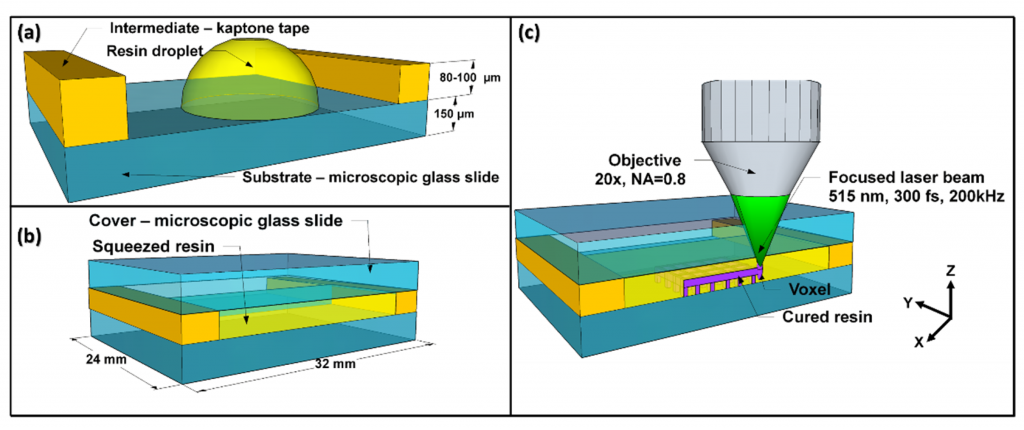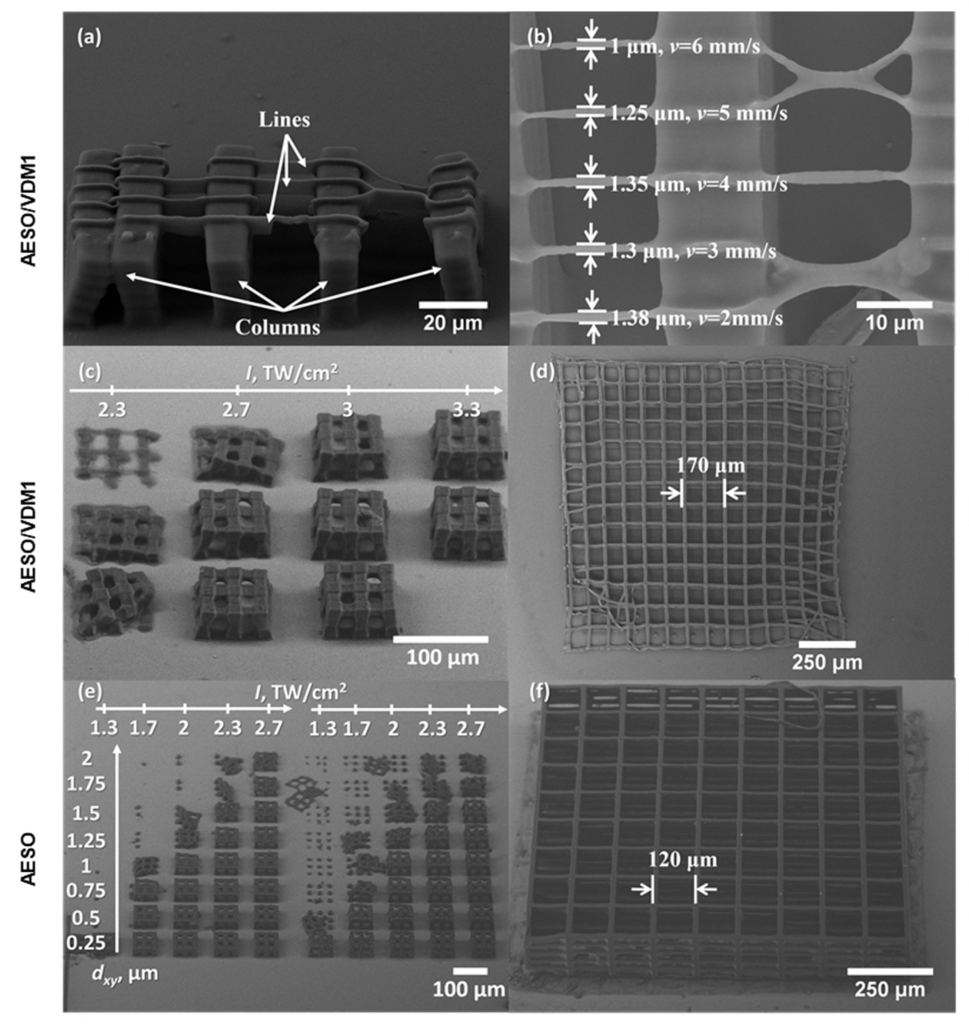A team of researchers from Kaunas University of Technology (KTU) and Vilnius University, Lithuania, have proved that a material based on cooking oil can be used for 3D printing.
Known as AESO (acrylated epoxidized soybean oil) the material is undergoing testing for its potential to replace petroleum-derived resins, and has been shown to work without the use of a photoinitiator.
The group’s most recent experimentation has been published online in Polymers journal.
Solvent-free 3D printing
In this latest study, the KTU/Vilnius team work with a custom-made direct laser writing (DLW) lithography technique. Like other related methods, (i.e. two photon polymerization) the DLW method harnesses the power and speed of femtosecond laser pulses to rapidly cure a liquid into a solid.

A small, square lattice was chosen as the test artifact. In total, the team experimented with three different AESO mixtures to determine the best possible formula, namely:
– Pure AESO
– AESO with vanillin dimethacrylate (VDM)
– And AESO with vanillin diacrylate (VDA)
Both vanilla-based extracts, derived from lignin, VDM and VDA were tested in this experiment as a replacement for the aromatic-compounds typically found in petroleum-based resins. As acrylates, both substances also have high light sensitivity which could boost polymerization.
An environmentally-friendly future for vat polymerization
In this experimental set up, tests shows that pure AESO and AESO/VDM are suitable for 3D printing, without the need for photoinitators or solvents.
Comparing the two however, conclusions add, “better thermal and mechanical properties were obtained for the pure AESO polymer.”
Furthermore, “The smallest achieved spatial features are 1 µm with a throughput in 6900 voxels per second.”

Overall, the team believes that this could be a promising step forward for the development of environmentally-friendly and sustainable polymers. Possible applications, due to avoidance of toxic ingredients, include 3D printed cell scaffolds, and nanophotonics.
“Photoinitiator Free Resins Composed of Plant-Derived Monomers for the Optical µ-3D Printing of Thermosets” is published open-access in Polymers journal. It is co-authored by Migle Lebedevaite, Jolita Ostrauskaite, Edvinas Skliutas and Mangirdas Malinauskas.
Source: 3dprintingindustry


